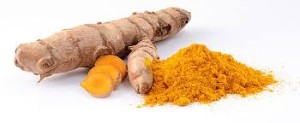That is the question posed by a program called “Trust me, I’m a doctor,” which was recently broadcast on BBC2, a channel that I cannot get here in Italy, unfortunately. I heard about it from some friends in the UK, and then I got to work and found a bunch of articles about the program, one of which I will share with you today. 
The program’s presenter, Michael Mosley, and his team of doctors decided to look into the claims that turmeric can “cure” everything from depression to cancer. So they devised an experiment, which they carried out on 100 volunteers. You can read about it here: goo.gl/zBs2pz
They split the 100 volunteers into three groups–one group took a placebo, another a teaspoon of turmeric powder (mixed in with their food), and the third one took the same amount of TURMERIC in the form of a supplement.
My first note: it appears that the third group didn’t take CURCUMIN, but turmeric, the spice. We’ll get back to that later on.
Blood samples were taken at the beginning of the experiment, then after six weeks. As far as the immune system was concerned, there were no significant changes.
But the results from the DNA methylation test were compleeeeetely different. Methylation, in a nutshell, is a process that can stop genes from working. That can be a bad thing…or a good thing. An example of “bad” is that methylation is can be a BIG trigger for the development of cancer.
I like the way Michael Mosley describes methylation, as “a dimmer switch that can turn the activity of the gene up and down.” Images can really help us understand complicated processes, methinks. Anyway, as far as this experiment is concerned, all we need to know is that, as I said before, methylation can trigger the development of cancer.
The BBC experiment showed no “methylation” difference in the placebo group, and no significant difference in the supplement group, BUT there was a “very significant change in the methylation patterns” in the group using the turmeric powder. And, remember, they were taking just one teaspoon of turmeric a day…
“This is a really striking finding,” said the professor in charge of the experiment.
Indeed!
One gene was affected, in particular…the SLC6A15 gene, which is associated with 1. depression and anxiety, 2. asthma and eczema, and…3. CANCER.
Now, as I mentioned above, my only problem with the experiment is that they apparently tested turmeric, not curcumin, supplements. Had they used a curcumin supplement, I have a feeling that the results would have been different.
That said, the fact that the turmeric powder users cooked with the spice and had this amazing result in such a short period of time confirms what we already knew: that turmeric (and therefore, curcumin) becomes more bioavailable when taken with heat and/or fat.
Another important result of this experiment: for perhaps the first time ever, scientists have shown that a change in diet can have an important effect on gene methylation and, consequently, on our risk of developing cancer. Amazing, eh?
I thought I’d write this post on this rather cloudy/rainy, lazy, and cool autumn morning in Florence…A few hours from now Stefano and I are having lunch with a Harvard classmate of mine (arriving in Florence today), and then the three of us are going to an exhibit of little-known works by Botticelli and Ridolfo del Ghirlandaio (isn’t the latter a simply wonderful name? Love how it sounds!). Should be interesting and lots of fun, too…Oh, the sun just came out! Off I go, then. Have a great Sunday, everyone! Ciao! 🙂
Good morning and thanks for this information.
I have been taking cucumin for about 7 Mo. I have mm and lung cancer. It’s small and had 4 radiation treatments and it was stable. Started taking turmeric in capsule form get CT scan later this month. Anxious to see if both cancers are any better or at least stable. Let you know after the results are in